–Last night a mob from Baltimore, lying in wait for the train from Philadelphia, at Canton, fired a pistol at the engineer, who stopped the train. The crowd, compelling the passengers to leave the cars, occupied the train, and forced the engineer to take them back to Gunpowder Bridge. There the train was stopped, and the crowd set fire to the draw of the bridge and waited till that portion was burned; returning to Bush River Bridge, the draw was likewise burned. The mob then returned to Canton Bridge and burned that. The train then conveyed the mob to the President-street station.–Phila. Press.
–The Charleston Courier of to-day contains an account of the damage done by Fort Sumter to Fort Moultrie and the surrounding property. It says the fire was “terribly destructive, and, when viewed in connection with the fact that no life was lost, is the most extraordinary case ever recorded in history.”–(Doc. 73.)
–A mass meeting of citizens in support of the Union, the Constitution and the Government, was held in Union Square, New York City. It was called by leading citizens without distinction of party.–(Doc. 73 ½)
–John C. Brekenridge, Ex-Vice-President, addressed a large audience at Louisville, Ky., this afternoon, denouncing President Lincoln’s proclamation as illegal, and saying that he could not make his 75,000 men efficient until after the meeting of Congress. He proposed that Kentucky present herself to Congress on the Fourth of July through her Senators and Representatives, and protest against the settlement of the present difficulties of the country by the sword–meanwhile that Kentucky call a State Convention to aid her Congressmen in presenting such a protest. Should that fail, however, it was the duty and the interest of Kentucky to unite her fortunes with the South. –N. Y. Times, April 22.
–The Fourth Regiment of Massachusetts militia landed at Fortress Monroe, Va., from the steamer State of Maine.–(Doc. 74.)–J. B. B. in the N. Y. Times, April 22.
–The citizens of Taunton, Mass., presented Major Robert Anderson a sword, “as an expression of their admiration of his courage, loyalty, and devotion to the country.” The presentation was made by Capt. W. C. Lovering at the Brevoort House in New York.–Tribune, April 22.
–Union meetings were held at Schenectady, Hudson, Utica, Waverley, and Dunkirk, N. Y; Stockbridge, Mass.; Bridgeport, Conn.; Springfield and Chicago, Ill. During the proceedings at Chicago, at the suggestion of Judge Mannierre, the whole audience raised their right hands and took the oath of allegiance to the Union, repeating the oath after the Judge.–Detroit Free Press.
–A southern merchant writes to a correspondent in New York:
“–, Tenn, April 20, 1861.
“Gentlemen: Our note to you for $187 12–100, due to-day, has not been paid.
“We deeply regret the necessity that impels us to say, that during the existence of this war we are determined to pay no notes due our northern friends.”–Evening Post.
–The St. Nicholas, a steamer plying between Washington and Baltimore, was seized at the former place this morning for prudential purposes.–National Intelligencer.
–Hiram Sibley, President of the Western Union, and T. R. Walker, President, and J. D. Reid, Superintendent of the New York, Albany and Buffalo Telegraph Companies, issued orders that no messages, ordering arms or munitions of war, will be received by their companies unless for the defence of the Government of the United States, and endorsed by the Mayor of the City from which it proceeds. Messages in cypher, excepting despatches from the Press of the U. S. officers of the Government, will be refused.
The Toronto Globe of this morning has a long article on the relations between England and the United States, advocating a sincere and firm alliance, forgetting all past differences, and says that the North has a just cause; that the permanent good will of the American people is worth striving for, and hopes to see the rebellion put down and the traitors dealt with as they deserve.–Louisville Democrat, April 21.
–The Missourians seized the United States Arsenal at Liberty, Mo., and garrisoned it with 100 men. In the arsenal were 1,300 stand of arms, ten or twelve pieces of cannon, and quite an amount of powder.
Two thousand stand of arms were furnished the citizens of Leavenworth from the arsenal at Fort Leavenworth, and the commander at that post accepted the services of 800 volunteers to guard the arsenal pending the arrival of troops from Fort Kearney.–Times, April 22.
–The Council of Wilmington, Delaware, appropriated $8,000 to defend the city, and passed resolutions approving of the President’s proclamation. Also, asking the Governor to issue a proclamation for the same purpose. The Brandywine bridges and all on the road between Susquehanna and Philadelphia are guarded, and workmen have been sent to repair the bridges destroyed on the Northern Central road.–Phila. Enquirer.
–Governor Curtin of Pennsylvania issued a proclamation calling a meeting of the State Legislature for the 30th of April, “to take into consideration and adopt such measures as the present emergencies may demand.”–(Doc. 75.) –Phila. Press.
–A letter was received at Philadelphia from Governor Letcher, of Virginia, offering $30,000 to the patentee of the bullet mould. The reply was “no money can purchase it against the country.”–Evening Post.
–An enthusiastic Union meeting was held at Middletown, Orange County, N. Y., this evening. The assemblage was presided over by Moses H. Corwin, a veteran of the war of 1812, and speeches were made by C. C. McQuoid, A. H. Byington, Charles H. Van Wyck and others. Mr. Van Wyck announced the fact of his having “enlisted for the war,” and with his company, just organized at Newburgh, he should proceed to Washington as a regular, if he had to walk all the way.–Tribune, April 23.
–The steamship, Star of the West, was taken into New Orleans as a prize to the Confederate States Government.–(Doc. 76.)
–Gosport Navy Yard, opposite Norfolk, Va., with stores, timber, munitions of war, etc., was burned by the U. S. officers in charge, to prevent its falling into the hands of the Secessionists, who occupied Norfolk and Portsmouth in force under Gen. Taliefero. The U. S. liners Pennsylvania, 74 guns; Delaware, 74; Columbus, 74; steam frigate Merrimac, 44; frigate Raritan, 45; frigate Columbia, 44; sloop Germantown, 21; sloop Plymouth, 22; brig Dolphin, 8; a powder-boat, and the frigate United States, (in ordinary.) It being impossible to get them out of the harbor, they were scuttled, and were also fired.
The frigate Cumberland was towed out by the steam-tug Yankee. The value of the property destroyed is estimated at $50,000,000.–(Doc. 77.)– Times, April 24.

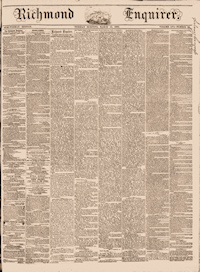
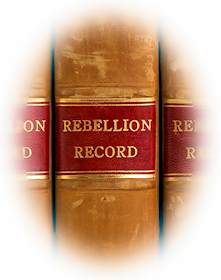
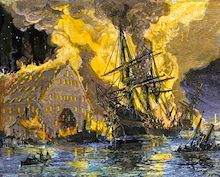 Great Union Mass Meeting in New York.
Great Union Mass Meeting in New York.
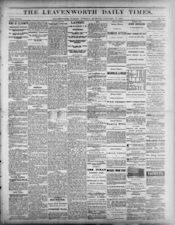


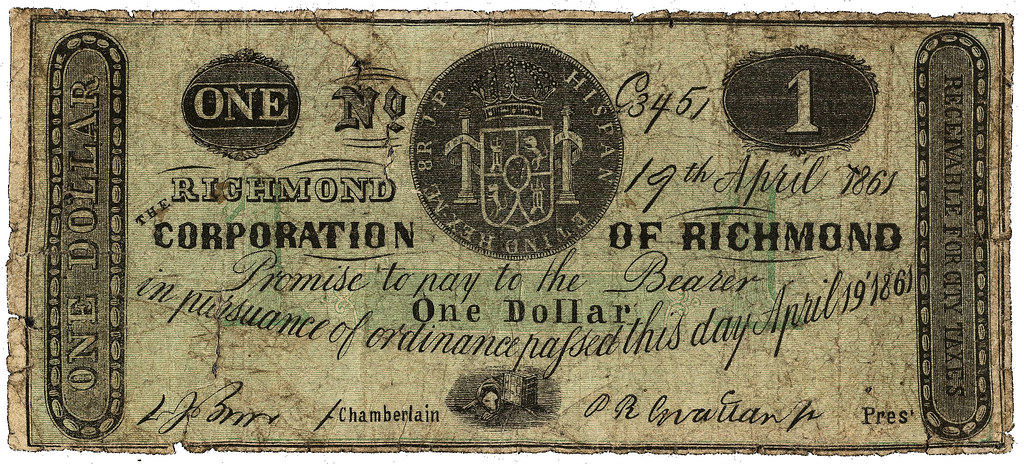
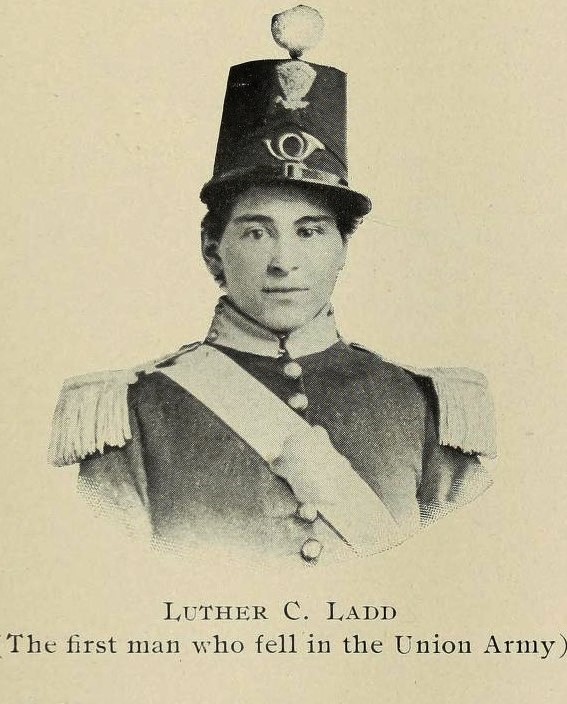 Luther Crawford Ladd (22 December 1843 – 19 April 1861) was a soldier in the Union Army who was killed during the Baltimore riot of 1861. He is often referred to as the first Union soldier killed in action during the American Civil War. Four days earlier, Private Daniel Hough became the first non-combat casualty of the war when he was accidentally killed by a cannon that went off prematurely during a salute to the flag. Luther Crawford Ladd was 17 years old at the time of his death.
Luther Crawford Ladd (22 December 1843 – 19 April 1861) was a soldier in the Union Army who was killed during the Baltimore riot of 1861. He is often referred to as the first Union soldier killed in action during the American Civil War. Four days earlier, Private Daniel Hough became the first non-combat casualty of the war when he was accidentally killed by a cannon that went off prematurely during a salute to the flag. Luther Crawford Ladd was 17 years old at the time of his death.